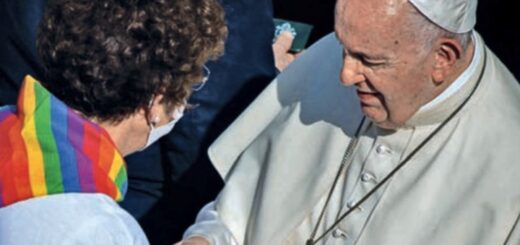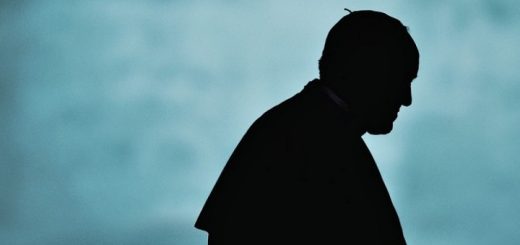Discovering the Gay Center in Rome
The Gay Center is a very important reality, as well as a point of reference for the Roman queer community. But the center does not only operate in the capital: one of the services provided in fact, to which they come called from all over the territory, is the gay Help line. To talk to us about the Gay Center is Alessandra Rossi, who is the coordinator of the Gay Help Line.
Since when is the gay center and what are its fields of action?
The Gay Center is a social promotion association and has existed since 2005: it is the home of multiple associations, namely Arcigay Rome, Lesbian difference Rome Arci and Trans Action. The feature of Gay Center is to have structured its history on direct support to LGBTQIA+ people who experience discrimination or Homotransfobic hatred, but it is also a space for social orientation, culture and socialization for all people and subjectivity LGBTQIA+ in Rome and their allies.
The project around which Gay Center has set up its mission is the Gay Help Line, National Anti -Omotransphobia National Contact Center, which responds to the toll -free number 800713713, which in 2025 will turn 20 years of activity and is now supported by the Municipality of Rome, by the National Anti -Hydiscrimination Office, from Buddhist, Valdese and Private Church.
The reality was founded by several groups (Arcigay, lesbian difference, trans action, NPS). How does your synergy work?
Our reality draws force from the synergy between the statutory areas of each association: Arcigay has a historical role and direct merit in the creation of this center, as well as in the struggles for LGBTQIA+ rights in Rome, which are linked to the history of Pride but also on the day of May 17 - International Day against homotransphobia. Lesbian difference is an ARCI association and undertakes in projects to combat violence against women and female subjectivity, of deconstruction of gender stereotypes, support for people who have experienced violence in the infragenere intimate relationship. Trans action promotes through groups of mutual aid and social research projects, Empowerment messages for the trans* and non -binary community in the header with other social marginalization factors.
What are the most requested services?
Gay Help Line receives 21,000 contacts every year and many of the requests for which we activate our support services concern teenagers and young people who suffer bullying and violence following the coming out. For them we activate paths of legal protection in case of real mistreatment suffered in the family, but also affirmative counseling interventions, to reinforce and recognize their sexual identity in a positive way. There are also many requests from schools to activate education against bullying.
Another field of action is widely used is support and social mediation for people on which discrimination and violence involve minor economic possibilities: for example, the right to have a home, that to find work in line with their expectations without fear excluding the revelation of sexual orientation or gender identity.
Operate in collaboration with institutional realities. Do you also support economically?
The realities with which we collaborate are the Municipality of Rome, which 20 years ago believed first in the importance of giving an institutional response to the exercise of homophobic violence: the occasion was the brutal killing of a boy, Paolo Seganti, at the Park of the Valleys in Rome, where he was attacked for his sexual orientation.
Subsequently, the National Office Anti -Discrimination Office in 2021 activated a financing line for anti -discrimination centers and refuge houses for children victims of homotransphobia. Our Refuge LGBT+ project already existed: Gay Center was in fact the first reality to open a family home, including the importance of giving a safe place to guys to whom it happens to be removed from families and marginalized following the coming out.
As part of the Gay Help Line, it was important to activate collaboration protocols with the legal protections system from violence: for this reason we have a collaboration with Oscad, an observatory against the discriminatory acts of the police forces. The protocols also concern sexual health: we collaborate with hospital companies such as the Lazzaro Spallanzani institute and IFO San Gallicano to ensure tests and visits for sexually transmitted infections.
The interlocution with secondary school institutes to carry out education projects for affectivity and relations is fundamental in the social and educational theme, while we collaborate with territorial social services in the context of the social secretariat of the Municipality of Rome.
How has the situation of LGBTQ people changed over the years?
From my first round of response to Gay Help Line, the awareness with which many people use services to ask for support have changed: thanks to the work done on the field, many people identify us as a safe space and a place where to claim their right to show themselves without having negative consequences for their life relationships. Being affirmative and visible spaces helps us to do a cultural work of enhancing individual differences and contrasting prejudices. Unfortunately, however, the percentages of violence and discrimination did not go down, on the contrary.
2024 will remember how the year in which the aggressions in public place in Rome have increased by 5% and many are still the young boys who request entry into the reception projects: more than 400 requests against 8 seats at the Refuge and 3 to the new Refuge Cohousing project that we opened last year, thanks to an assignment by the Town Hall I of Rome of an asset confiscated to the mafia.
Especially in recent months there have been many political decisions and often symbolic actions at an international level that have marked a step back on the road to the rights of equality: I think it is necessary to activate Tuttə to testify the importance of protecting the dignity of each person.
That's what the gay center does. And that's what we can and we must do in our small way because the sea is made of drops and, as the Latins "Gutta Cavat Lapidem did not say you, Sed Saepe falling" (The drop drips the stone not with the strength but by falling often)
We thank Alessandra for her contribution, remembering that we can all be, simply not being afraid of who we are, the drop that consumes the rock of intolerance.






